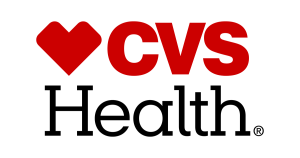
Give those who collect the income firm control of the outgo. There is no such thing as an unlimited draw from a limited pool.
We know this works by looking at the market as it exists right now.
The Veterans Administration takes the biggest risks, people who’ve served our country. They come to the system with terrible problems, and they age out in terrifying ways. Yet the per-patient cost of delivering health care to these people is a fraction of the cost of our other delivery systems, because the government controls both income and the outgo.
The VA is a single-payer system. It gets its money direct from the government, it has a clear mission and requirement to treat people, and it can bargain for the best prices. VA hospitals aren’t fancy, many of the doctors are new to the profession, the staff is stressed, and the whole system is rickety, but it works. And when the Trump people try to privatize it, when they seek to destroy it, this will become very clear to all veterans, even those who would otherwise love them some Trump. They won’t love them some Trump, or any other privatization-mad Republican, ever again if he succeeds in destroying their VA.

But there are companies making a fortune treating these people, and at the low prices Medicare and Medicaid pay. Centene and Wellcare are just two of the companies prospering in this way.
What no insurer will tell you is that managed care, which is what Centene and Wellcare practice, is the hottest niche in the industry. Under managed care, the company that provides the insurance owns facilities, it controls drug disbursement, and doctors are employees like everyone else.

Beyond this, putting doctors and everyone else on salary, building or renting low-cost physical facilities, and using technology to keep an eye on both doctors and patients, works. It’s small wonder that Amazon, JP Morgan Chase, and Berkshire Hathaway recently got together to form their own managed care company. Between them they have 1.5 million employees, so initial marketing costs are nil. Scaling up, in part through buildings these companies already own, delivering medicine through things like Amazon’s Pillpack, and using best practices as described by the group’s CEO, Atul Gawande, practically guarantees a fat profit.

People agitating to undo the mergers of CVS and Aetna, or of Express Scripts and Cigna, are missing the message of the market. Combining drug disbursement with insurance income is the next step in the reform process. Cigna and Aetna can’t hike prices willy-nilly, because they must compete in the market with United Healthcare, which beat Express Scripts in the market by buying Catamaran, a competing Pharmacy Benefit Manager (PBM).

PBMs are supposed to save money by bargaining on price and by making sure people take the drugs as prescribed, which reduces complications, especially on those chronic conditions that represent most of the cost. Turning them into units of insurers, which are focused on saving money to deliver competitive prices, is the best, fastest way of reforming them, because when the insurance bean-counters find their PBMs are costing them customers, things change.
This brings me to the real driver of health care costs, which is drug company greed.
I was hammered on the Twitter recently by an advocate of these people, claiming that any discussion in Congress of giving government researchers a taste of drug industry profits was illegitimate.

It would be easy, from a practical standpoint, to simply change the law, to allow Medicare, Medicaid, managed care providers and PBMs to bargain on drug prices as the VA does. This would drive prices down and the rapid expansion of the field, with multiple drugs becoming available for many conditions, would do the rest. Drug companies raise prices because they can. Someone in the marketplace must say they won’t pay.
Because of industry opposition to this simple reform, we find ourselves debating the nationalization of all health care, tearing down the entire insurance system in order to create a solution like one the VA already provides our bravest.

Opening the drug business to competition, so managed care can do its job, might seem an appropriate fallback position, but the fact is that Newton’s laws work in politics as everywhere else. For every action there is an equal and opposite reaction. Trump’s depredations may make publicly-controlled health care the path of least resistance. You’re a veteran, you’re a veteran, everyone becomes a veteran!
This may be one of the greatest tragedies of the present tragic age, revolt looking more practical than reform, because those who normalized kleptocracy have lost all credibility.











Very helpful article. Thanks for sharing.
Very helpful article. Thanks for sharing.